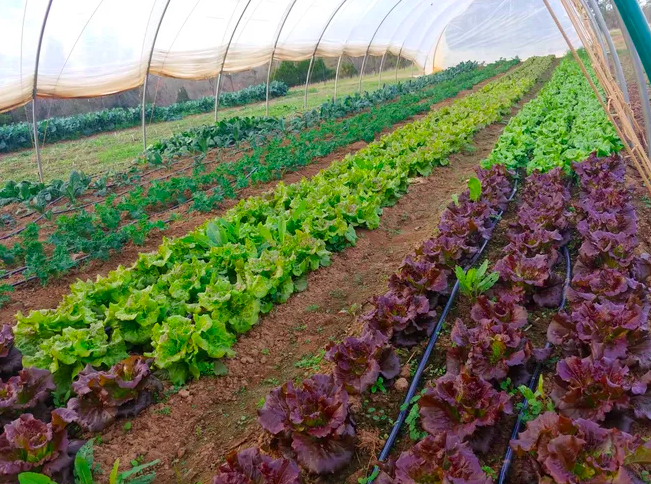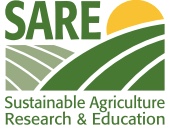Success Stories
Florida Blue Farms
Florida Blue Farms is located in Waldo, Florida, and in 2009 they transformed their 50 acres of silviculture land into a Southern Highbush Blueberry farm. Since then, the farm has expanded to 90 acres of blueberry production. They received the Agricultural-Environmental Leadership Award in 2017 by Florida Farm Bureau Federation for the sustainable practices they’ve implemented on the farm. Florida Blue Farms follows the Specialty Fruit and Nut Crop BMPs to include weather stations for weather monitoring. In addition, they also utilize drip irrigation, ground cover, soil moisture monitoring, and plant tissue and root growth monitoring. The farm has a recovery pond encompassing two acres which is used for drainage. They have also implemented filter strips and EnviroGrid Geocell systems to reduce the farm’s influence on local waterways, and fertigation systems to apply nutrients directly to each plant’s roots.
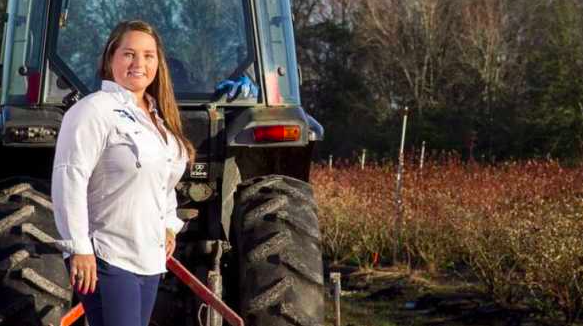
Speedling Inc.
Speedling Inc. was founded in 1968 and is located in Sun City, Florida. Speedling carefully measures the moisture levels throughout their nurseries to maximize the efficiency of transplant operations. The Sun City nursery is an 800,000 square feet greenhouse that uses overhead water trolleys to reduce the amount of water used and prevent runoff. At a second location, four million gallons of water is circulated in a sub-irrigation circulation system across 700,000 square feet. This system uses 80% less water than traditional overhead irrigation. These practices won Speedling the Agricultural-Environmental Leadership Award in 2017 by Florida Farm Bureau Federation.
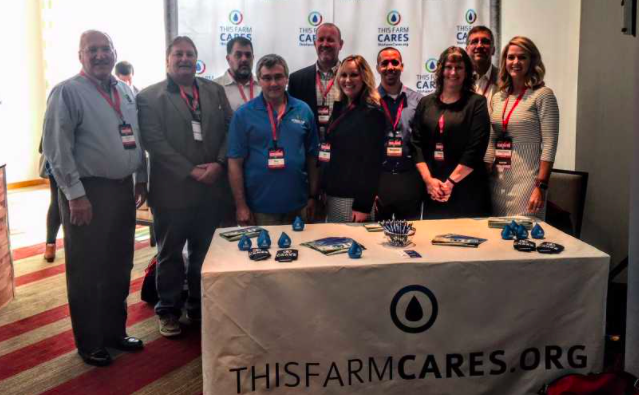
Cindale Farms
Cindale Farms is a small dairy farm in Marianna, Florida, that also runs an ice cream business called Southern Craft Creamery. Cindale was one of the first farms to enroll in the FDACS’ Dairy Best Management Practices. Cindale also prioritizes nutrient management and has participated in the Environmental Quality Incentives Program and the Wildlife Habitat Incentives Program. These programs helped them to achieve a nutrient management plan, rainwater and storage plan, erosion control, and grazing management. They implemented a plan for a baseline of fertilizer use with the help of the USDA- Natural Resources Conservation Service. Because of these practices, Cindale farms was awarded the Agricultural-Environmental Leadership Award in 2017 by Florida Farm Bureau Federation.
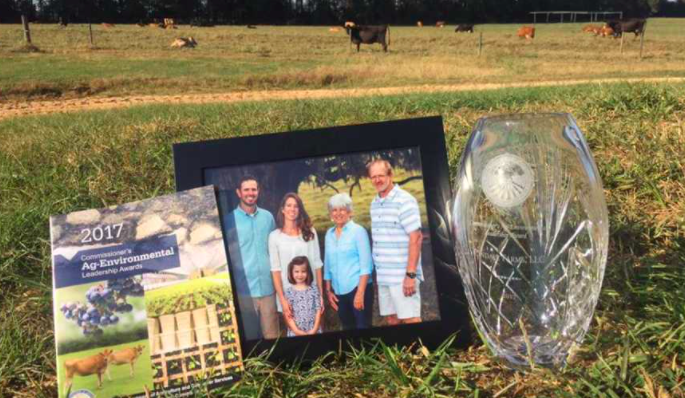
West Coast Tomato
Gary Reeder, owner of West Coast Tomato in Palmetto Florida, received the the 4R Advocate Award by the Fertilizer Institute in 2017 for the sustainable practices used on the tomato operation. The 4Rs stand for the Right Source, Right Rate, Right Time, and Right Place. All together, the 4Rs ensure fertilizer use is as efficient as possible and doesn’t negatively impact waterways. Reeder uses soil testing, targeted fertilizer application, intense water management, and a finely tuned irrigation system to keep his tomato operation running sustainably.
Jacob’s Farm
Jacob’s Farm is a 1400-acre cabbage farm located in Manatee County, Florida, operated by the Sam Family since 1986. The Sam Family implemented sustainable practices on their land with the help of David Royal, the Nutrient Stewardship Project Manager for the Nature Conservancy in Florida. In 2015, David convinced the Sams to try a nutrient management experiment on five, 30-acre fields. Previously, the Sams were applying the bulk of their fertilizer on the fields before their crop was planted, resulting in a lot of leaching and nutrient runoff. David divided the five fields in half, one half of each field was fertilized as usual, and the other half was fertilized precisely for cabbage by “banding” the fertilizer beneath the soil surface directly at the root zone. As a result, the fields that were “banded” harvested 22 more pounds per acre, and a more uniform stand, which allowed the crop to be harvested in two cuts rather than three or four- saving time and money. The Sams family was so pleased with the results that they decided to implement the 4Rs to all of their fields.The Sams family also tweaked their irrigation practices to save water and reduce runoff, and planted cover crops to aid in erosion control and improve soil health. The farm is more resilient to extreme weather events, and yields have more than doubled even though about 1000 acres of their land has been sold.
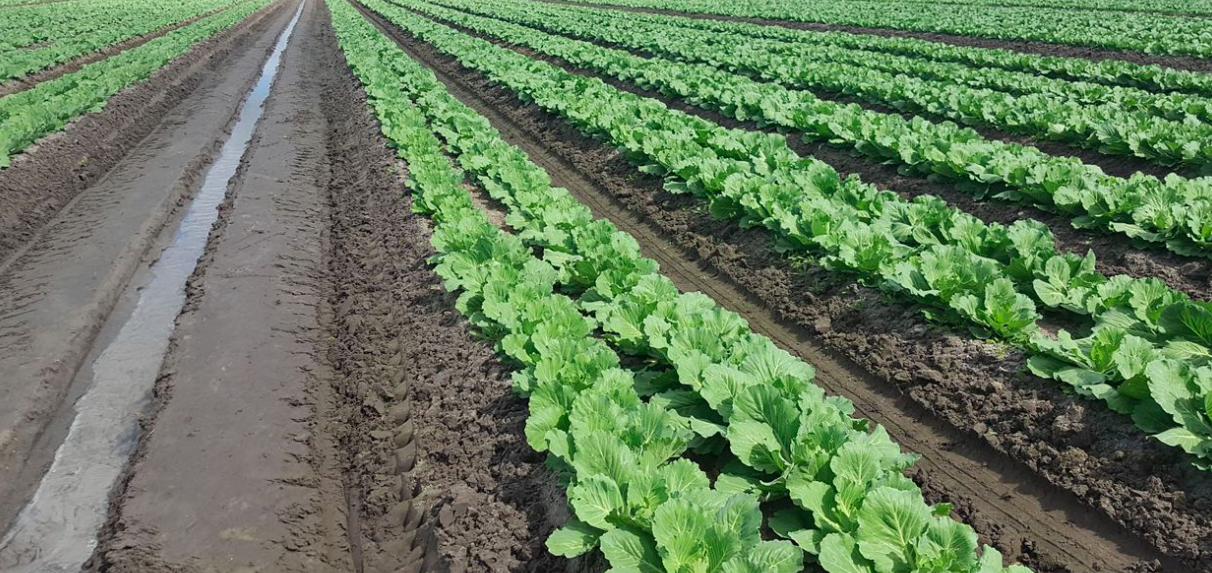
Florida Research Center for Agricultural Sustainability
The Florida Research Center has citrus groves located near the Indian River on the east coast of Florida. The citrus program utilizes sustainable agricultural practices based on old Florida “Cracker” growers as well as new bio-rational pesticides. The groves are fertilized with organic fertilizers and biologically renewable fertilizers produced from plant debris. These fertilizers are applied to the ground while foliar sprays are applied to the canopy. Toxic pesticides are not used on the groves and an Integrated Pest Management plan protects crops and ensures a sustainable program.
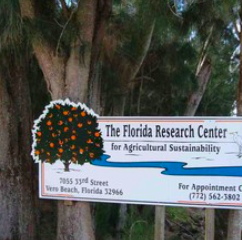
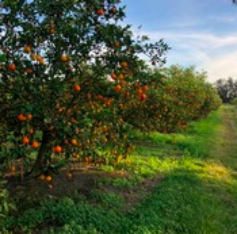
Full Earth Farm
Full Earth Farm was founded in 2009 in Quincy, Florida, by Aaron Suko and his wife, Katie Harris, and grows a variety of vegetables each season. Full Earth Farm follows Certified Naturally Grown standards and distributes produce directly to households by a CSA subscription service. Quincy has almost no topsoil due to many years of mineral erosion from wind, water, sun and bacteria. To combat this, Full Earth Farm uses natural fertilizers, compost, and cover crops. This reduces nutrient runoff in waterways, improves soil structure, protects against erosion, and aids in nutrient cycling.
